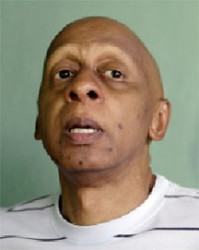HAVANA, (Reuters) – President Barack Obama’s decision to end five decades of enmity with Cuba has shaken the island’s political dissidents, dividing their ranks and forcing them to rethink tactics.

Throughout the Cold War and beyond, the United States relied on the small dissident movement to lead domestic opposition to Cuba’s communist government and keep track of human rights abuses.
So after Obama last week tore up the tough, decades-old policy aimed at crippling Cuba, some dissidents feel betrayed and unsure of their movement, which infuriates the government and has limited public support. The United States will still encourage Cubans to push for more political rights but it now has its own direct channel to President Raul Castro’s government, raising uncertainty about the dissidents’ future value to the Americans.
While some dissident leaders welcomed the policy shift for stripping Cuba’s government of excuses for economic shortages and strict political control, others complained the deal was negotiated without their knowledge and against their will.
“President Obama has made a mistake,” said Berta Soler, leader of the Ladies in White, a largely Roman Catholic group that has protest marches each Sunday. “This is going to benefit the Cuban government, strengthening and equipping its repressive machine.”
While her group was marching on the streets, enduring harassment and detention, the U.S. government was engaged in secret talks with Havana over the past 18 months.
Guillermo Farinas, who was detained like clockwork at 38 consecutive weekly protests outside his home this year in the city of Santa Clara, was even more blunt.
“I feel betrayed,” said Farinas, who was bothered by the secrecy of the talks and said the views of dissidents were discounted. “I know some people are offended by that word, but I use it on purpose.”
Farinas was in the minority during a landmark meeting of 29 dissidents from across Cuba who gathered for 10 hours on Monday at the office of 14ymedio, the news and opinion website of prominent blogger Yoani Sanchez.
Soler did not attend. Other senior dissident leaders either welcomed Obama’s policy shift or accepted it as a reality beyond their control.
In a joint statement, they applauded the prisoner swap that allowed the release of U.S. foreign aid worker Alan Gross and more than 50 unidentified Cuban prisoners.




